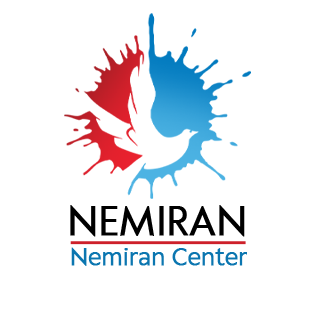A brief biography of the life of Mastoora Shaswari
– Tawar in Kurdish means female eagle.
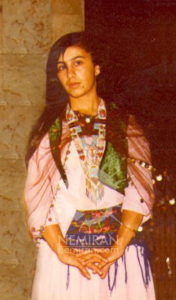
Unfortunately, some documents, archives, and websites have incorrectly or incompletely described the life and struggles of the prominent “lioness” of the Kurdistan Liberation Movement, Tawar. This article is an attempt, albeit a brief one, to record more clearly a part of this lady’s life and struggle, and the Kurdish resistance movement.
Tawar lived a short life, but she lived as a high flying, free eagle. Mastoora Shasawari, who later became known as Tawar in the battlefield, was born to a middle-class family in the city of Saqqez on , 24-09-1961. Unfortunately, very soon, Tawar was deprived of the blessings of her mother’s love and affection, and with the death of her mother, a great grief and loss was created in Tawar’s life. In the absence of her mother, she took the effort to fill the void of maternal love and affection for her three younger brothers and a sister, and like a compassionate mother, she casted a cloud of love on their life.
Her older brother Syamand was arrested at the age of 17 by the secret police SAVAK during the infamous Pahlavi regime, and imprisoned in the Sanandaj prison, after gruesome torture and interrogations, until the fall of the regime. Syamand’s arrest played an undeniable role in making Tawar’s fire of anger against the dictatorship more intense. Tawar tirelessly and vigorously went to Sanandaj prison to meet him, and according to the evidence left through the letters of that time, she was highly trusted by her older brother and an important moral support to him.
Tawar was popular and influential among her family members and friends and trusted by them. She was a charismatic woman among her comrades, and the way she performed her responsibilities was compassionate, honest and energetic. Tawar was very hopeful about the future of the struggle and the Kurdish liberation movement. She, along with several other trusted friends, all of whom were men, formed several secret nuclei at the age of sixteen. Their work included distributing leaflets and flyers against the Pahlavi regime among high school girls and boys. She was always keen on studying and reading, and in this way she became acquainted with leftist thought and Marxism.
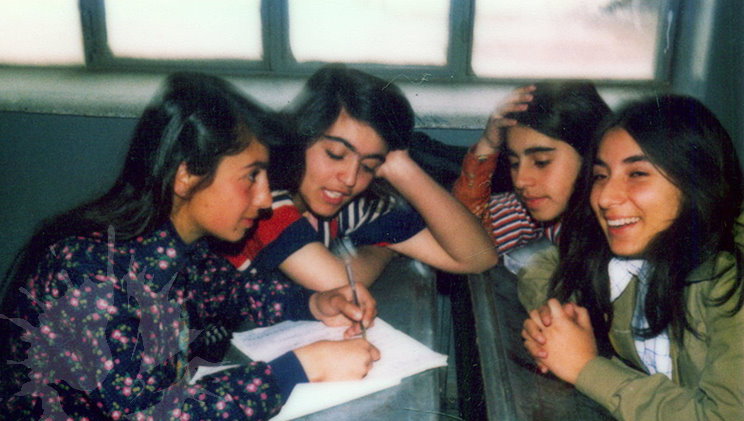
At the same time as fighting for social justice and eradicating poverty and class distance, she was also involved in the struggle for the promotion of human rights and the national rights of the Kurdish people. These struggles continued after the victory of the people’s liberation movement against the Pahlavi tyranny. She was always present during the demonstrations and protests, which usually were versatile and colourful, and played a prominent role in the Saqqez student strike, and for this reason, her role and influence among the people and students was increasing every day. After the fall of the Pahlavi dictatorship and before the establishment of the reactionary regime of the mullahs, a free space emerged in Kurdistan for a short time. This space also had a positive impact on the further spread of political and freedom-loving thoughts among the Kurdish people, and political parties and groups soon became more prominent in Kurdistan.
However, it did not take long for the regime to launch a military offensive in Kurdistan. Tawar who had never bowed to oppression, continued her struggle in the same popular movement with all her experience and even more maturity than before. Alongside this hard and exhausting effort, she and a friend of her opened some small libraries for children in villages near Saqqez, such as Ahmadaway Sara and Sunnata. In this way, they wanted to contribute to the upbringing and intellectual development of children.
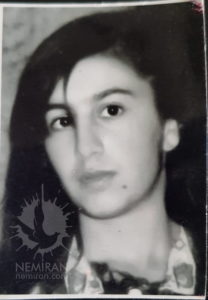
Tawar was also one of the avid activists of the Saqqez, who marched to the city of Marivan along with activists from Sanandaj and Baneh cities to support the historical march of the people of Marivan to Kani Miran camp, which was a collective protest against the seditionist and belligerent policies of the Islamic Republic.
After finishing high school, Tawar continued her education at the college of health schools in Sanandaj alongside with her political activities. She also opened a library in her neighbourhood in Sanandaj, and encouraged local people to establish a neighbourhood council.
After the regime’s second military invasion of Kurdistan, which began after Nowroz 1980, Tawar joined the ranks of fighters and defenders of Sanandaj and actively defended Sanandaj side by side with her comrades in the communities of Sanandaj. After resisting for more than a month, the city finally fell to the regime. During the subsequent re-establishment of the regime in the city, she tried to support and help her comrades to escape from Sanandaj. But she herself remained in the city.
A person who was with Tawar during her imprisonment and until her execution, told the following: After the reconquest of the city by the regime, the rest of the detainees were transferred to the Sanandaj barracks. From the very beginning, Tawar was severely tortured by the Revolutionary Guards, and especially by a local mercenary named Haj Massoud. They sought to make Tawar to confess by continuous violence and torture, but this brave lady not only didn’t break down but she also angered her torturers and interrogators including Haj Massoud with her silence and devoted resistance. The resistance of Tawar soon became well known among the prisoners. After more than a month of torture, one day when she was returned to prison with a sore body covered in blood, she told her companion: “I know very well that I will be executed, so today I told them that I am a peshmerga, and I will fight till my last breath against the regime of the Islamic Republic”.
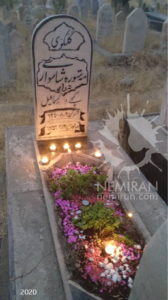
Tawar gave some last words for her family to her fellow prisoner, which were conveyed meticulously. Finally, on the night of May 25, 1980, Tawar alongside a young male prisoner from Baneh was brought to the middle of the large square of the Sanandaj garrison, where more than 250 prisoners were present. Her eyes were blindfolded and her hands were tied, and they were placed next to a wall. At this moment, Tawar asked to have her eyes uncovered, so she could be shot with open eyes, as she was not afraid of death, but the executioners of the regime did not accept her request. After the shooting, Haj Massoud, the mercenary, kicked and insulted her body, but that shameful act didn’t go unanswered. Not many years later, this traitor mercenary got killed by the Peshmerga. A few days after the execution of Martyr Tawar, her body was transferred to Bukan for burial, as the war in Saqqez continued. There were 9 bullets in the body of Tawar. Her body was later transferred to Saqqez and buried there.
Tawar was the first Kurdish woman to be executed in East Kurdistan by the reactionary regime of the mullahs. Tawar is a symbol of courage, freedom, selflessness and self-sacrifice of Kurdish women who fought for justice, equality and the elimination of discrimination in all its forms.
Long live the memory of Tawar and the Kurdish Tawars!
